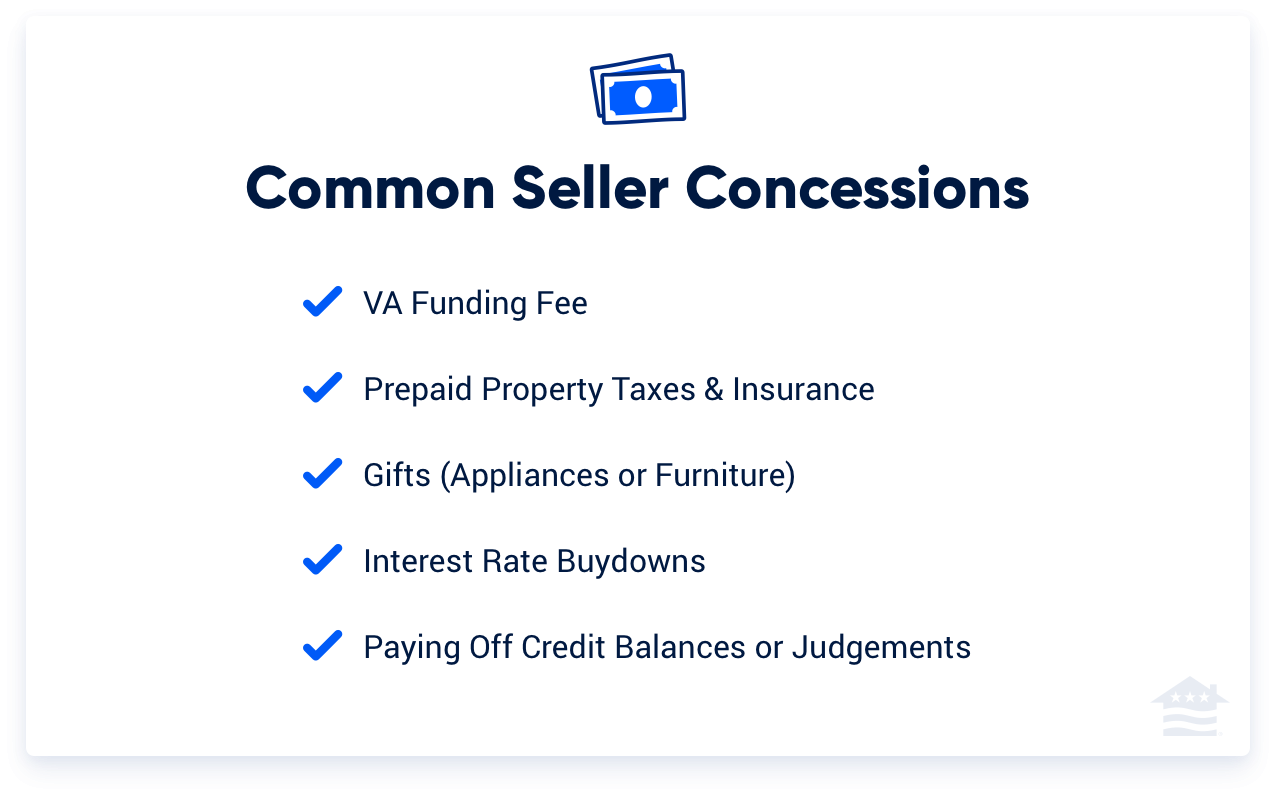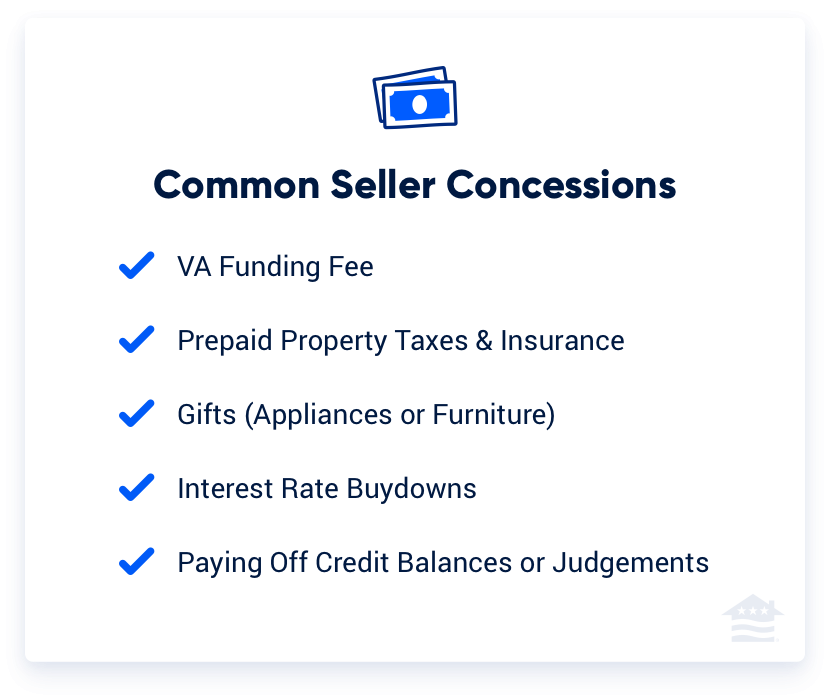When buying a home with a VA loan, one potential way to save money is by negotiating seller concessions. Seller concessions are financial incentives or contributions from the seller that help reduce the buyer's out-of-pocket expenses. The Department of Veterans Affairs (VA) allows these concessions to cover up to 4% of the loan amount, but they must be items outside of standard closing costs.
One potential way to save when buying a home is to discuss seller concessions. Seller concessions are financial incentives or contributions that a home seller offers to a homebuyer to help reduce the buyer's out-of-pocket expenses associated with purchasing the home.
The VA’s policy on seller concessions is rather flexible but requires that they do not exceed 4 percent of the loan amount. The VA also stipulates that the calculation of seller concessions cannot include the buyer's normal closing costs. Instead, seller concessions refer to items outside of standard closing costs that the seller agrees to pay on behalf of the buyer.
Let's take a deeper look.


How Do Seller Concessions Work?
Seller concessions are anything of value added to the transaction by the builder or seller that the buyer is not responsible for. These fees can include anything not paid by the buyer or covered by a lender credit. Seller concessions are fees not typically expected or required to be paid for by the seller.
Seller concessions do not include the payment of the buyer’s closing costs, and cannot exceed 4% of the loan amount. Common seller concessions may include:
- Paying the VA funding fee: The seller can pay the VA funding fee on behalf of the buyer, reducing the buyer's upfront costs.
- Paying off buyer's debts: The seller may agree to pay off certain debts (such as credit cards or auto loans) to assist in qualifying for the loan.
- Permanent interest rate buydowns: The seller pays discount points to lower the interest rate for the life of the loan.
- Temporary interest rate buydowns: Funds are placed in escrow to reduce the interest rate temporarily (e.g., a 2-1 buydown).
- Prepayment of taxes and insurance: The seller can prepay property taxes and homeowners insurance premiums for the buyer.
- Homeowners' association (HOA) fees: Paying a portion of the buyer's HOA initiation fees or dues.
- Closing gifts: Gifts typically include items like appliances, furniture or new flooring.
Closing Costs and Seller Concessions
With a VA loan, it's important to distinguish between closing costs and seller concessions. Closing costs are standard fees associated with obtaining a mortgage and completing a real estate transaction. The seller can agree to pay all of the buyer's loan-related closing costs without these payments being counted toward the VA's 4% seller concession limit.
Typical closing costs include:
- Origination Fee: This fee covers the lender's cost to underwrite and process your loan application.
- VA Appraisal Fee: A mandatory VA appraisal assesses the home's value and ensures it meets the VA's minimum property requirements.
- Title Insurance: This required fee protects the lender against potential disputes over property ownership.
- Property Taxes: These are pro-rated taxes due at closing; the seller can prepay these fees for a specified period.
- Attorney Fees: In some states, an attorney is required to conduct the closing, which incurs additional fees.
Understanding the Difference
Closing Costs: These are standard fees that can be paid by the buyer or negotiated for the seller to pay. There is no limit on how much the seller can contribute toward these costs in a VA loan.
Seller Concessions: These are additional contributions from the seller that goes beyond traditional closing costs.
Explaining the 4% VA Seller Concession Rule
VA rules say that the value of a seller concession can equal as much as 4 percent of the selling price. Again, that's in addition to "normal" loan-related closing costs.
For the sake of comparison, conventional loans typically allow sellers to pay 3 percent in concessions, while FHA borrowers can ask sellers to pay up to 6 percent.
Sellers are not required to offer concessions or pay any of a VA buyer's closing costs. This is always a matter of negotiation between the two parties, and this is where having a VA-savvy real estate agent can make a huge difference. Some sellers will be more likely than others to pay concessions in order to get their home sold.
How Seller Concessions Help Homebuyers
To see the importance of seller concessions, imagine that you buy a property for $400,000. The local market is weak. The owner — unable to sell for months — agrees to pay all traditional closing costs plus $8,000 to pay off an auto loan balance. Paying off the car loan saves $200 a month.
When the property closes, the official record will say that it sold for $400,000. In fact, the VA buyer will have no closing costs, no down payment, and in this case, a pesky $8,000 debt paid off at settlement.
You can learn more about VA seller concession policies by speaking with a Veterans United loan officer.
Related Posts
-
 How Discount Mortgage Points Work on a VA LoanPurchasing discount points on a VA loan can be a good investment for Veterans looking to lower their interest rate.
How Discount Mortgage Points Work on a VA LoanPurchasing discount points on a VA loan can be a good investment for Veterans looking to lower their interest rate. -
 Understanding Government-Backed MortgagesGovernment-backed mortgages, like FHA, VA, and USDA loans, offer more secure and accessible homeownership options with low down payments and flexible credit requirements.
Understanding Government-Backed MortgagesGovernment-backed mortgages, like FHA, VA, and USDA loans, offer more secure and accessible homeownership options with low down payments and flexible credit requirements.
